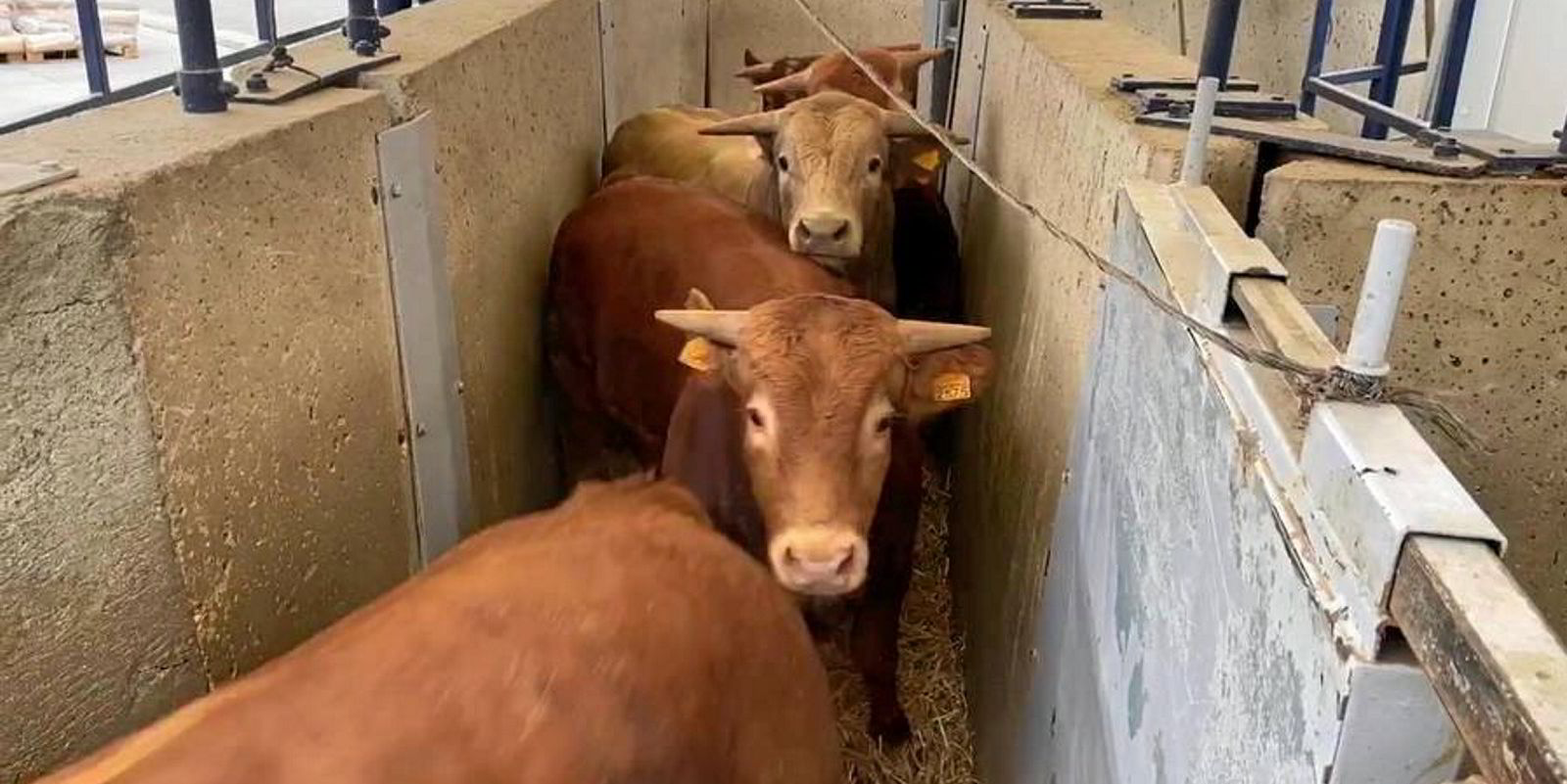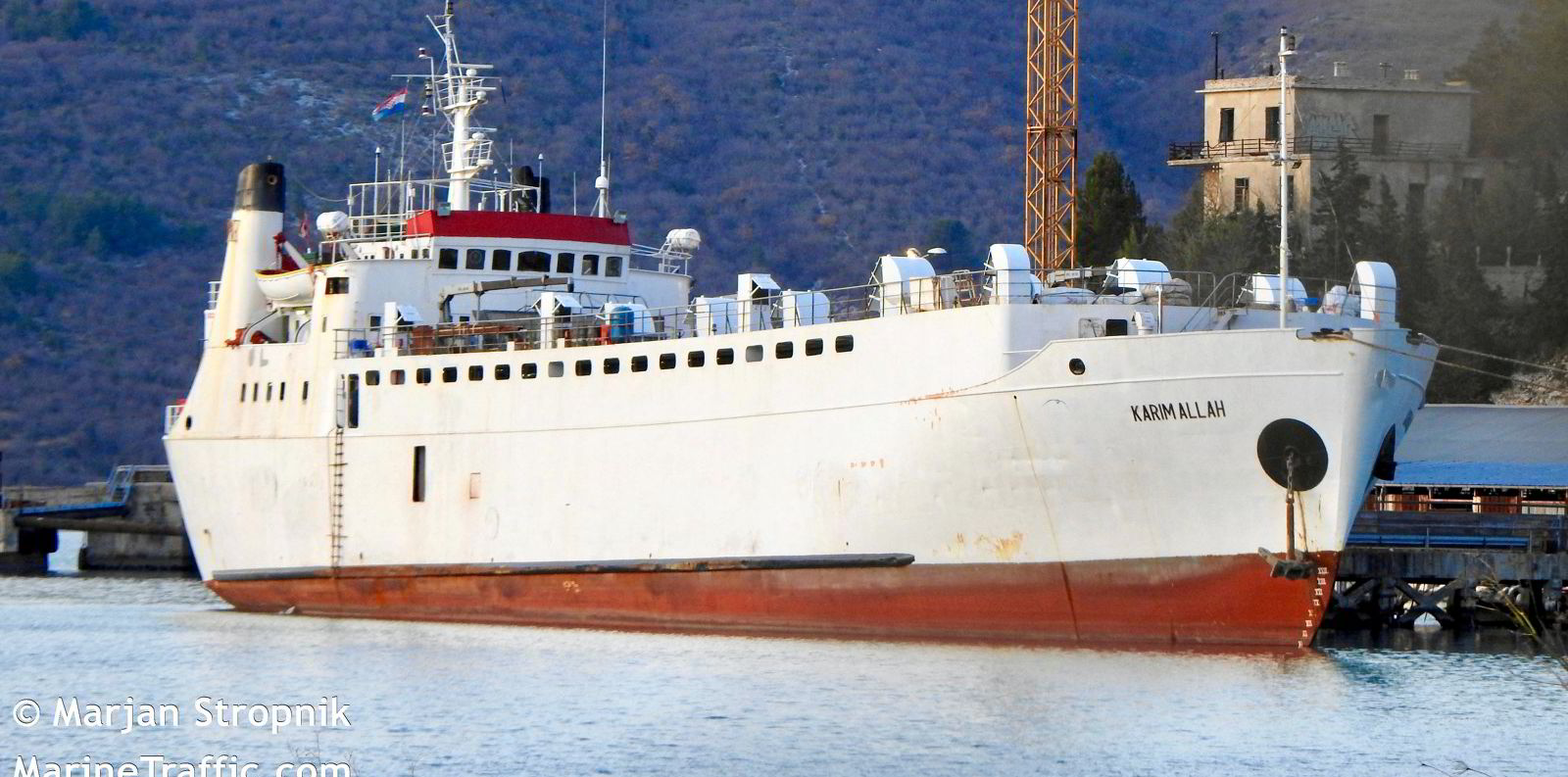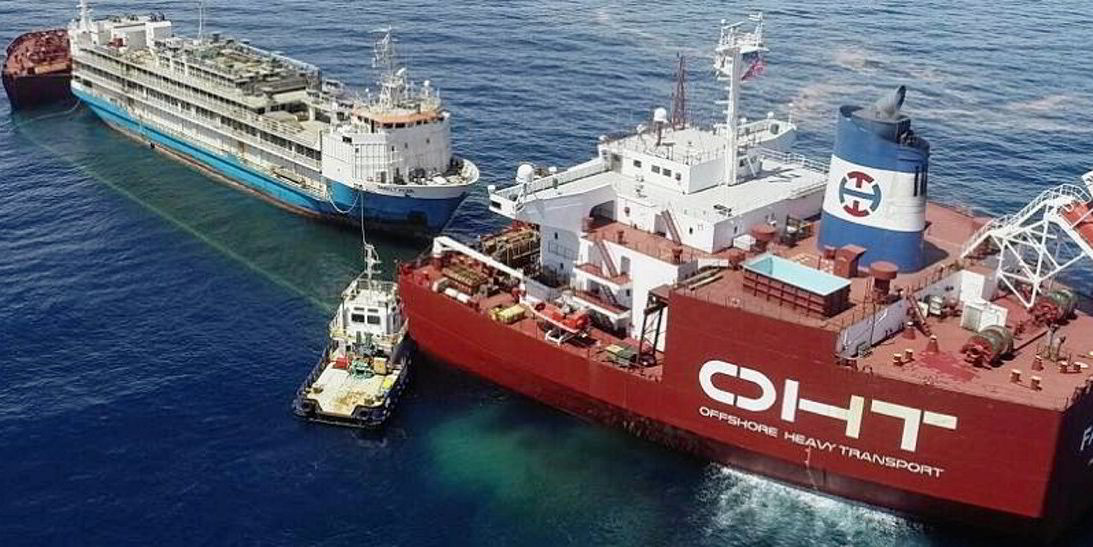A Lebanese-managed livestock carrier is heading back to its country of origin after failing to deliver its cargo of nearly 1,800 cattle in several Mediterranean countries, causing outrage among animal rights groups.
Authorities in Spain, where the 2,900-gt Elbeik (built 1967) started its journey in mid-December, have accepted the ship’s return. That is according to an official in Greece, the last country to supply the ship while barring it from entry.
“It is now underway to Cartagena,” deputy agriculture minister Fotini Arabatzi told Greek state television on 9 March. Vessel tracking data confirms Elbeik left the Greek port of Kalamata late on Tuesday and was sailing west in the Ionian Sea as of 0817 GMT.
Pro-animal groups have been describing the ship’s journey as coming “straight from hell”, while castigating authorities in several countries for treating the case as a hot potato to get rid of.
“From the moment the Elbeik reached Greek territorial waters, the agriculture ministry did everything in its power to send it away,” the country’s Animals Party, a fringe political group, said in a statement on 7 March.
The 2,587-gt Karim Allah (built 1965), another Lebanese-managed livestock carrier with a similar history, is already back in Spain. Animal activists fear that the 850 animals it has on board will be slaughtered as they are no longer fit for further transport.
“Both cases clearly show that the legally required contingency plans do not work for live exports by sea,” pressure group Animal Welfare Foundation said last month.

A Mediterranean cruise from hell
Veterinarians have not been allowed on board the Elbeik to find out whether the cattle indeed suffer from disease, the Animals Party said.
The ship, which is managed by Rana Maritime Services, was originally scheduled to deliver its cargo to Libya.
Authorities in that country, however, refused to allow the cattle to get on land, citing concerns about an epidemic of bluetongue disease on board. The illness does not spread to humans but can be lethal to sheep and sometimes also attacks cattle.
“The problem started when the load wasn’t delivered, as scheduled, in Libya,” Arabatzi said.
Instead of returning to Spain, however, the Elbeik wandered around in the Mediterranean, trying to approach third countries.
After it was refused access in Libya, Tunisia and Egypt, the Elbeik anchored last month off Famagusta port, in the Turkish-occupied part of Cyprus where local authorities supplied it with feed for the animals.
“A shipping agency alerted us that there was risk of starvation on board… [and] we saved the animals from perishing,” Northern Cyrus agriculture undersecretary Emirali Deveci said in a report by Turkish website Denizhaber.
Turkish authorities also criticised the internationally recognised government of Cyprus for failing to take responsibility for a load coming from Spain, a fellow European Union member state.
Arabatzi, however, argued that the Elbeik lost EU privileges after it approached third countries, such as Libya or Egypt, where it was docked in Alexandria for more than three days.
Citing health concerns, Greece therefore refused the ship’s request to dock in Piraeus on 5 March to receive supplies, feed and spare parts. However, it agreed to provide fuel on the island of Crete.






